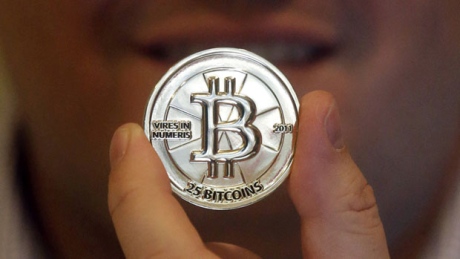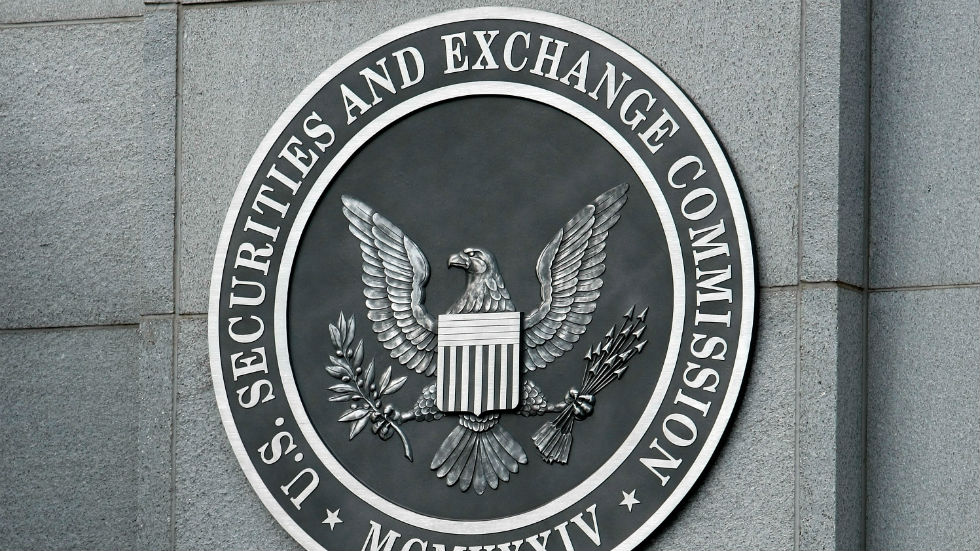Search Results For: bitcoin regulation

Bitcoin Airlines: Japanese Peach to accept the digital currency
Peach Aviation is going to become the first Japan’s airline to accept bitcoin for buying any flight.
This move comes after the Japanese decision to regulate bitcoin as currency, becoming a legal method of payment back in April 1st, 2017.
During a recent interview with CEO Shinichi Inoue, he said:
“Now you can travel without your wallet. I think this is innovation; we’ll put all our energy into it.”
Peach is a budget domestic flights company that operates in Korea, China and Thailand.
The firm announced that they will accept bitcoin payments by the end of 2017; also, the firm is looking to install Bitcoin ATMs at airports.
“This is a real first step in partnerships for Japan and we are aiming for more company and service tie-ups,” said Inoue in an interview conducted by Bloomberg.
“We want to encourage visitors from overseas and the revitalization of Japan’s regions.”
Several major retailers and merchants are starting to accept bitcoin in Japan thanks to the recent law on digital currencies, as you can read here.
And this is maybe one of the prominent reason why bitcoin price is growing so much during the latest period.
Also, Japanese traders are driving bitcoin prices as they transacted huge amounts on the exchanges: recent studies revealed that Yen is the major fiat currency being exchanged for bitcoin.
Bitcoin airlines worldwide
There are a few other bitcoin airlines in the world and also several ways to book a flight with digital currencies.
For example, CheapAir and BtcTrip are the first platforms that accept this disruptive method of payment.
Also, Latvia-based airline and Virgin Galactic began accepting bitcoin since 2013/2014, while if you want to book a private jet, you can do it through JetVizor.
More bitcoin airlines to suggest? Write us a message in the comments! We would be happy to add new companies.
Open your free digital wallet here to store your cryptocurrencies in a safe place.

Price tripled in 1 year: why you should hold bitcoin
Bitcoin price is nearing its all-time high price of $1,277, maybe because of the impressive growth within the Japanese bitcoin industry. Read here why you should hold bitcoin.
Experts argue that bitcoin price will increase consistently in the mid-term if Japan and the US sustain their growth and if small markets such as India will decide for a massive change related to bitcoin regulation.
Bitcoin price drove by India and Japan
India has always been considered the more important Bitcoin markets because of its poor banking system.
Right now, in fact, 40% of India population can be defined as “underbanked“.
The greatest part of people in India cannot rely on banks and financial institutions to manage their funds.
Recently, the demonetization of 500 and 1,000 bank notes decided by the Indian government led to a national financial crisis, as banks and ATMs ran out of cash to dispense, so Indian citizens cannot obtain cash for their daily basic needs.
Also, PwC explained that 233 mln Indians didn’t have any access to bank accounts since October of 2015 and 43% of adults in India made no deposits or withdrawals in any banks or financial institutions.
Bitcoin hold: why?
Bitcoin exchanges in India – such as Zebpay and Unocoin – began to see a huge growth in their user base and trading volumes.
One key factor that would allow the Indian Bitcoin industry to grow at a rapid rate similar to China, South Korea and Japan is the legalization of Bitcoin.
Bitcoin regulation in India should arrive this summer, according to recent press releases.
This way millions of new users would emerge, and Bitcoin price will rise in the mid-term.
That’s why you should hold bitcoin and store them in a safe place.
Open your bitcoin wallet here on the HolyTransaction multicurrency wallet. You can store more than 10 digital currency within the same account, so it is very easy to manage.
Open your free digital wallet here to store your cryptocurrencies in a safe place.

Bitcoin users growth: read the University of Cambridge’s research about cryptocurrencies
According to a recent research conducted by the University of Cambridge, bitcoin users number has increased by four times in five years.
The research explains that bitcoin active wallets surged from 8.2 mln in 2013 to nearly 35 mln in 2016, suggesting that the number of active wallets ranges from 7.5% to 30.9% of the total number.
The Global Cryptocurrency Benchmarking Study by the Cambridge Centre for Alternative Finance at the University of Cambridge suggested an estimated number of unique active bitcoin users wallets to be grown from between 0.6 mln and 2.6 mln in 2013 to currently between 5.8 mln and 11.5 mln in 2017.
This study – led by Dr. Garrick Hileman & Michel Rauchs – is the first of its kind to examine the growing global cryptocurrency industry and its exchanges, wallets, payments and mining platforms.
The research, in fact, is not only focused on bitcoin users, but also on cryptocurrencies in general.
“81% of wallet providers are based in North America and Europe, but only 61% of wallet users are based in these two regions,” the study which collected non-public data from nearly 150 companies and individuals states. “Almost half of all wallet providers are located in the United States and the United Kingdom. If we break down origin by world region, Europe is leading with 42% of wallet providers, followed by North America with 39% and Asia Pacific with 19%.”
North American wallet providers think that the current regulation is good and 57% of European and 2% of Asian-Pacific wallet services seem to be satisfied with the existent regulation.
Exchanges have to gain more popularity yet as only two of the 51 exchanges included in the research can provide a decentralized platform: 40% of North American wallet platforms said that the existing regulation is excessive and too strict – a point of view shared by 14% of European companies.
Another focus of this study is the innovative and rapidly changing of the cryptocurrency economy that is becoming more fluid in a few countries.
It says the line between exchanges and wallets is more and more “blurred” and several other digital currencies after Bitcoin are now supported by a growing environment as they are able to be used in a wide range of use cases.
Also, it argues that security-related problems and the lack of clarity about digital currencies regulation will continue to be prevalent in the next future.
Open your free digital wallet here to store your cryptocurrencies in a safe place.

Bitcoin in Japan: a new way to evaluate blockchain projects
While there is lack of clarity related to the regulation of Bitcoin in Japan, one of the Japanese government ministries has worked to develop a new way in order to evaluate projects related to the distributed ledger tech.
The Ministry of Economy, Trade and Industry (METI), in fact, announced a few details about this new methodology, that was created by the Information Economy Division of the ministry’s Commerce and Information Policy Bureau.
According to a presentation published a few days ago, METI will exploit this process to consider projects for a variety of use cases, by evaluating more than 30 different characteristics including project scalability, privacy and overall reliability.
People involved with the creation of this new methodology explained it was developed to impartially weigh blockchain-related projects.
The official presentation explains:
“No evaluation indices or criteria had been established to adequately assess the features of the technologies and to compare them with existing systems. This causes the public anxiety, misunderstanding, and unreasonable hopes to blockchain technologies, and leading to a potential unwillingness to introduce the technology.”
It is not a big surprise that the Japanese ministry is involved in this project, as it has already supported the blockchain technology in the past.
METI, in fact, is conducting some researches about the technology since 2015, commenting that the government should play a supporting role. Also, the Japanese ministry has sponsored a trip abroad for local bitcoin and blockchain-based startups.
Click here to read more about Bitcoin in Japan news.
Open your free digital wallet here to store your cryptocurrencies in a safe place.

Bitcoin in Russia: transactions will be monitored
Bitcoin in Russia will be officially “recognized” by 2018, but each transaction will be subjected to monitoring.
In a recent statement by the Russian central bank, Deputy Finance Minister Alexey Moiseev explains – in an interview quoted by Bloomberg – that a legal position about Bitcoin in Russia will be taken in the next future.
Recently, bitcoin and altcoins had been put aside regarding regulation, with users and companies operating in Russia threatened with takedowns and jail.
In October, Russian communications watchdog Roskomnadzor blocked access to a peer-to-peer marketplace called LocalBitcoins, but developers responded by setting up a new mirror site, LocalBitcoins.net.
“The state needs to know who at every moment of time stands on both sides of the financial chain. If there’s a transaction, the people who facilitate it should understand from whom they bought and to whom they were selling, just like with bank operations,” said Moiseev about the Russian government position.
While digital currencies are still yet to receive an official status, Bloomberg reports that they will be treated as assets, cash or security by mid-2017.
Back in January, Deputy Olga Skorobogatova (Bank of Russia) commented that authorities “would not like to concretely block anything” instead of “understanding how to approach cryptocurrency and from this generating a basis for regulation.”
Read more about Bitcoin in Russia by clicking on the blog post titles below.
Open your free digital wallet here to store your cryptocurrencies in a safe place.

Bitcoin ETF decision expected by Friday
The US Securities and Exchange Commission (SEC) has to make an important decision related to the much-anticipated bitcoin ETF, or the bitcoin-based exchange-traded fund.
This decision is expected by Friday, as the SEC has an deadline fixed on March 11st to make the approve or disapprove a proposed rule change that would allow the creation of the first worldwide bitcoin ETF.
But, because the 11st falls on a Saturday, this decision could come before that date, maybe on Friday.
The proposal came three years ago, in mid 2013, by investors Cameron and Tyler Winklevoss.
If the fund receives approval, several experts speculated that bitcoin price could grow and maybe this expected approval already drove the bitcoin price in recent weeks, setting new all time highs in the recent period.
In fact, Bitcoin price neared $1,300 in recent days, reaching $1,293.47 on 3rd March.
By the way, bitcoin price kept falling back to $1,300, experiencing a drop on 7th March, when markets drop below $1,200 for a few hours.
Otherwise, if the SEC decides to reject the proposal that would allow the Bats Global Exchange to list the bitcoin ETF, experts said that the digital currency price would be negatively affected.
Phil Bak, CEO atACSI Funds explained that generally the SEC wants to avoid the appearance of “publicly rejecting an ETF”, so if the agency didn’t plan on approving a fund, it would ask for the filing to be pulled ahead before any final decision.
“In this case, the government agency may want to show the world it is unsure about bitcoin. Alternatively, it could also be that the advocates want to support it to the end and let this proposed fund get its day in court, rejection or not.”
In the lack of definitive statements published by the SEC, it’s really easy to understand why a common return of uncertainty has emerged during this week.
Arthur Hayes, CEO at BitMEX, explained:
“I have heard good arguments for and against the ETF being approved. At this point it is a coin toss.”
Waiting for the Bitcoin ETF
At the moment people who are waiting for the SEC’s decision canno do anything instead of only watching and waiting for the 11th March deadline.
ETF expert and co-founder at RagingBull, Jeff Bishop, commented that the SEC could make its decision further past the 11th, also because of the recent price gain.
“I have the feeling they will find a way to delay this even more though. With bitcoin at all-time highs and the SEC having a terrible record for allowing new ETFs to come to market at absolute tops, they will likely push back on this until things cool a bit. It should be up to investors to decide the true price of bitcoin. The more liquidity and options [there are] to trade it, the more transparent and accurate the pricing will be. It should not be up to a government agency to withhold something like this from the public.”
Open your free digital wallet here to store your cryptocurrencies in a safe place.

Europe Bitcoin report published by the EU Parliament. Read it here.
Below you can read the full Europe Bitcoin research published by the European Parliament a few days ago.
It is related to the blockchain technology and digital currencies, exploring distributed ledger use cases including digital payments, patent protection, smart contracts and online voting.
This research provides an educational point of view for EU’s legislative members, so probably we will experience a new Bitcoin regulation in the next future.
Researchers who works at the EU Parliament have studied several aspects of the distributed ledger in the past.
For example, a working group sponsored by the Parliament studied how the blockchain’s power to secure data could provide transparency during elections.
“Although blockchains are not the solution for every problem, and even if they will not revolutionize every aspect of our lives, they could have a substantial impact in many areas, and it is necessary to be prepared for the challenges and opportunities they present.”
“Europe Bitcoin” paper
The research suggests a few possible approaches for the European lawmakers, who recently approved the creation for a new task force focused on blockchain and digital currencies.
Also, the paper suggests more future explorations by saying that regulators could regulate and yield legal legitimacy to digital currencies transactions. More and more countries are regulating bitcoin and other virtual currencies during the last few monts.
The document’s authors explained also that this revolutionary techbology could provide many benefits to European citizens, even if it seems to be applicable only in a few cases.
“While the most idealistic and revolutionary visions of blockchain development will probably remain no more than visions, even moderate implementation of blockchain may still promote some degree of redistribution and transparency,” explained the authors in the document.
Click here to read the full Europe Bitcoin document for free.
Open your free digital wallet here to store your cryptocurrencies in a safe place.

Polish Bitcoin regulators recognized it within the country
Polish Bitcoin regulators decided to recognize the digital currency within the country.
In fact, the country’s Central Statistical Office (GUS) revealed its decision to recognize the trading and mining of digital currencies as an official economic business in Poland.
This is the reason why from now on companies active in the Polish industry are be able to register themselves with the agency.
Businesses who are involved in cryptocurrency trade and production activities can now apply to obtain an official PKD 64.19.Z registration, the GUS explained in a press release.
This news highlights a significant step forward for industry workers in Poland where currently there isn’t an official regulation or legislation about neither bitcoin or other digital currencies.
Earlier this year the Polish Ministry of Finance released a few documents that expressed the status of legality for bitcoin and cryptocurrencies in general.
Also, in a statement published back in November, the finance ministry commented what follows:
“there is a lack of a general, legal definition of virtual currency in international, European and national law”.
This explains that digital currencies are subjected to income tax, even if they are not subject to any separate regulation according to the Polish legislation.
Polish ministry also commented:
“It should also be stressed here that their use in Poland is fully legal.”
Polish Bitcoin studies
To explore the legal and financial implications of the use of the Polish Bitcoin use, government of Poland has created a new group of blockchain and virtual currencies experts.
This Polish Bitcoin task force was established under the surveilance of the Polish Ministry of Digital Affairs, and according to thePolish government’s program titled “From Paper To Digital Poland“ that was written by the Cabinet back in June 2016.
This task force will be responsible to prepare analyses for use by other government agencies in their legislative work and the possible chance of a Polish Bitcoin and digital currencies regulation is one of its goals and interests.
Open your free digital wallet here to store your cryptocurrencies in a safe place.

Denmark Bitcoin: Digitalizing National Currency
Today I want to talk about the Denmark Bitcoin position and regulation.
Denmark is a place where its citizens relie on cash less than most other European countries, so it is thinking about digitalizing its national currency.
To do so, the Danish central bank wants to release its own digital currency based on a blockchain and it will be called e-krone.
Governor of the Danish central bank, Lars Rohde. commented that the government doesn’t want to print its own fiat currency in the future.
So Rohde is looking for outsourcing the production of Danish krone and wants to replace it with its independent financial system based on the distributed ledger technology: the e-krone.
In an interview conducted by Bloomberg, Rohde explained that the Danish central bank effort is not related to the blockchain technology or alternative fintech technologies:
“We’re not preoccupied with the technology because we know that issue well. Cash and notes are not an alternative to electronic payments. We went beyond that many years ago.”
Also, the most important problem the central bank is worried about is the anonymity of the e-krone.
At the moment, the Danish bank believes that the e-krone will have a serial number embedded onto its Blockchain, so the government will be able to track the currency thanks to a transparent ledger.
However, another issue about the anonymity of a currency are the predictable complaints by the Danish citizens who expect to be provided with financial freedom and privacy.
“All money held by Danes will eventually end up in the central bank in the event of a financial crisis, and we will indirectly end up doing a bailout because we become a creditor to all the banks.”
But the distributed ledger tech is not applicable to the concept of the Danish central bank, as structurally it cannot be established for the central bank as network moderator.
To read more news about Denmark Bitcoin position, click here.
Open your free digital wallet here to store your cryptocurrencies in a safe place.

Ernst and Young Bitcoin accepted in Switzerland
Ernst and Young Bitcoin: the Swiss branch of global professional services firm will accept the cryptocurrency-kind of payment next year.
Starting in January, Ernst and Young Switzerland will allow bitcoin for invoice payments, as the company explained in a new press release.
Switzerland, Ernst and Young Bitcoin: a profitable relationship
The Swiss firm will also open a new BTM (or Bitcoin ATM) at its office in Zurich, as well as a wallet option for its employees.
This Ernst and Young project is part of the bigger cultural experiment on bitcoin and the distributed ledger conducted in Switzerland.
Late last month, in fact, Swiss railway service announced that it will sell bitcoin on its nationwide network of ticket kiosks; also the Swiss town called Zug will accept Bitcoin for public services payments, as its major explained back in May.
According to Ernst and Young, this launch fits perfectly with this experimental context created in the Swiss country.
Switzerland’s CEO, Marcel Stalder, commented that the company wants its employees to know digital currencies and the blockchain. This project is to provide ways to access a hands-on education, he said.
Stalder explained:
“We don’t only want to talk about digitalization, but also actively drive this process together with our employees and our clients. It is important to us that everybody gets on board and prepares themselves for the revolution set to take place in the business world through blockchains, smart contracts and digital currencies.”
Ernst and Young is just one of the “Big Four” accounting firms involved in the blockchain sector at the moment.
Recently, the company also decided to open a blockchain-related contest for startups with the goal of “exploring how blockchain technology can tackle challenges in digital rights management and energy trading.”
Learn more about Switzerland and Ernst and Young involvemet in the bitcoin field, by clicking on the links above.
Open your free digital wallet here to store your cryptocurrencies in a safe place.